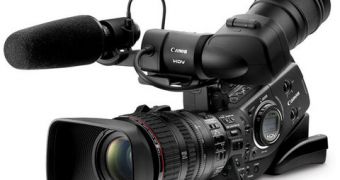The official launch of Intel's Thunderbolt technology in the 2011 MacBook Pro systems from Apple has been one of the most interesting surprises in terms of connectivity solutions since the appearance of USB 3.0, and it seems that this high-speed tech might start to get some supporters in other areas of the consumer electronics spectrum.
So, according to a report by Electronista, it seems that Canon, one of the world's best-known manufacturers of digital cameras and camcorders, might actually also throw its weight behind the new data transfer interface, although, for the time being, nothing in this direction is really official, apart from a quick statement by a Canon official, quoted by the aforementioned source.
Quite obviously, this means that, at some point on the future, we might actually get to see Thunderbolt-equipped DSLRs and camcorders (probably, just from the professional segments) being introduced onto the market, thus making it a lot easier for videographers to access and transfer their content from the imaging device to the editing stations.
In fact, as far as videos recorded in HD-grade resolutions (or above) are concerned (typically occupying quite a hefty amount of storage space), Thunderbolt technology would prove to be extremely beneficial, given the fact that its maximum supported data transfer rate (10Gbps) is way above those provided by the solutions currently in use, namely the eSATA or FireWire 800.
Should Canon decided to actually implement the Thunderbolt technology into their camcorders, Apple will certainly benefit from it, not only because its MacBook Pro systems are the first notebooks to incorporate this high-speed interface, but also because its computers are among the top photographers' and videographers' favorites.
However, timing is also important, given the fact that multiple Thunderbolt-packing computing systems are bound to start hitting the market in 2012, and if Canon delays the launch of its Thunderbolt camcorders to next year, then Apple's advantage might not even be that important.

 14 DAY TRIAL //
14 DAY TRIAL //